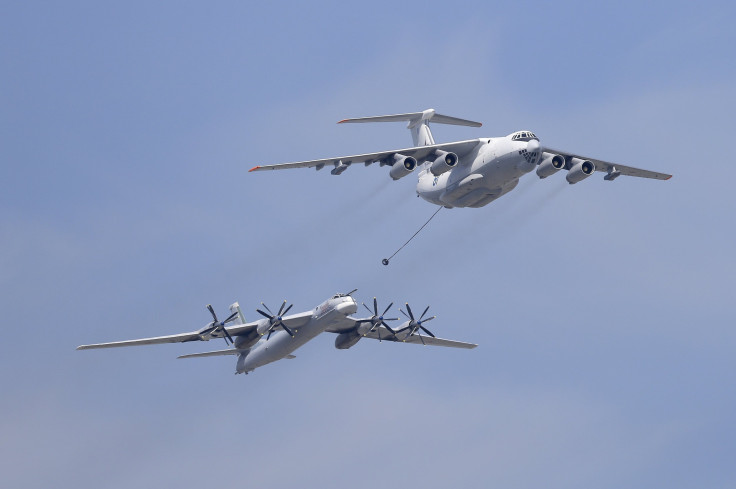Russian Bombers Flew Over Sea Of Japan, Entered South Korean Air Defense Zone: Report
KEY POINTS
- It happened a day after South Korea and the U.S. began their drill
- Korea said its military took tactical steps against possible accidents
- Russia does not recognize South Korea's Air Defense Identification Zone
Two Russian strategic bombers reportedly flew over the neutral waters of the Sea of Japan before entering South Korea's Air Defense Identification Zone (ADIZ). Interestingly, it comes a day after South Korea and the U.S. began their biggest-ever joint military drill.
The flight lasted seven hours and the two Russian Tu-95 bombers were escorted by a Sukhoi Su-30 fighter jet over waters between the Korean Peninsula and Japan, reported Reuters, quoting Russian media.
Russia claimed the South Korean military scrambled F-16 fighter jets in response to the Russian bombers. Seoul's Joint Chiefs of Staff (JCS) too acknowledged the intrusion, though it did not provide details like the number of Russian planes and their types.
"Regarding the Russian military aircraft's entry into KADIZ, our military took tactical steps in preparation against possible accidents," the JCS was quoted by The Korea Times. The JCS, however, did not validate Kremlin's claim that South Korean F-16s were deployed.
The KADIZ is not a territorial airspace, but foreign planes have to identify themselves inside the area so as to prevent accidental clashes. However, Russia does not recognize the zone as it claims South Korea has unilaterally established the area and therefore, it is not binding for other states.
Besides Russia, China too did not recognize the KADIZ and often sent warplanes into the zone. In 2019, Russian planes allegedly violated South Korea's airspace and its military had to fire hundreds of warning shots toward the aircraft.
Interestingly, Russia's provocation comes at a time when the U.S. and South Korea announced their biggest drill ever. The "Ulchi Freedom Shield" drills will have thousands of troops taking part in live-fire exercises combining land, sea and air forces. Though the drills were aimed at countering North Korea, they gain significance amid the latter's close relationship with Moscow.
South Korea has also been very vocal about its support for Ukraine and had even provided over $40 million in humanitarian assistance to Ukraine, including 65 non-lethal military items. Ukrainian President Volodymyr Zelensky had requested South Korea for military equipment support to help his country fight Russia.
At the same time, Seoul is also a purchaser of Russian oil, gas and coal with reports saying it purchased products worth $1.7 billion since the war began. According to Finland-based think-tank Center for Research on Energy and Clean Air, South Korea is also re-exporting a significant amount of Russian oil to China.

© Copyright IBTimes 2025. All rights reserved.





















